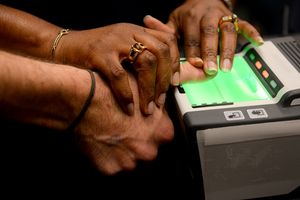Dubai, June 30: The United Arab Emirates is all set to reopen mosques and other places of worship at 30 per cent capacity from July 1.
However, Friday prayers will remain suspended in the country, said Saif Al Dhaheri, Spokesperson for the National Crisis & Emergency Management Authority (NCEMA) during a virtual press briefing on Monday.
The official said certain mosques in industrial areas, labor residential areas, shopping malls and public parks will remain closed until further notice.
He said health authorities already conducted Covid-19 tests for Imams and workers serving at the mosque to ensure health and safety of the worshippers.
Al Dhaheri also spelt out guidelines that worship centres have to follow to welcome worshippers.
A distance of three metres should be observed between each worshippers and no handshakes are allowed. Worshippers will have to perform ablutions at home. People should bring their own personal copies of Holy Quran or read from digital copies. It is also mandatory for all worshippers to download and activate contract tracing app AlHosn.
"We urge the public to cooperate by following precautionary measures including social distancing. Children under 12 years old, the elderly as well as individuals with chronic diseases should avoid going to mosques," said the official.
The UAE first announced the suspension of public prayers in all places of worship on March 16, which was extended until further notice on April 9.
As Khaleej Times reported, places of worship had been preparing to reopen since the last few weeks by sanitizing parking lots and outdoor areas, entrances, main prayer halls and ablution areas.
The spokesperson also announced that the Private and commercial boat trips and water sports will be allowed to operate at reduced capacity of 50 per cent but by following precautionary measures.
The total number of recovered cases of Coronavirus (Covid-19) in the UAE has reached 37,076 with 665 cases recovered today after receiving treatment. Since the beginning of June, UAE has had a daily recovery average of 660 cases, said Dr. Amna Al Shamsi, Spokesperson for the UAE government.
Guidelines
1. Maintain a distance of 3 metres between worshippers.
2. No handshakes allowed.
3. Ablutions must be performed at home.
4. To read the Holy Quran, worshippers must bring their own copies.
5. All worshippers must download and activate contact tracing app AlHosn
6. People in vulnerable categories like those with chronic diseases and the elderly must not visit the mosques.







Comments
Add new comment